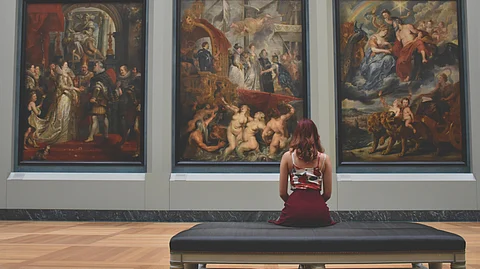Feeling stressed, overwhelmed, or just in need of a mental boost? In the Swiss city of Neuchâtel, doctors now have an unconventional remedy: a prescription for a free museum visit.
Thanks to a groundbreaking pilot program introduced by local authorities, healthcare professionals can prescribe “museum visits” as part of treatment plans. The initiative allows patients to visit any of the town’s four museums at no cost, offering a refreshing alternative to traditional medical treatments.
The science behind art as therapy
The program isn’t just about enjoying beautiful paintings or historical artifacts, it’s rooted in science. A 2019 report by the World Health Organization (WHO) found that engaging with the arts can reduce stress, help manage trauma, and even slow cognitive decline.
Julie Courcier Delafontaine, a member of the Neuchâtel council, stressed the importance of cultural spaces in promoting mental well-being.


